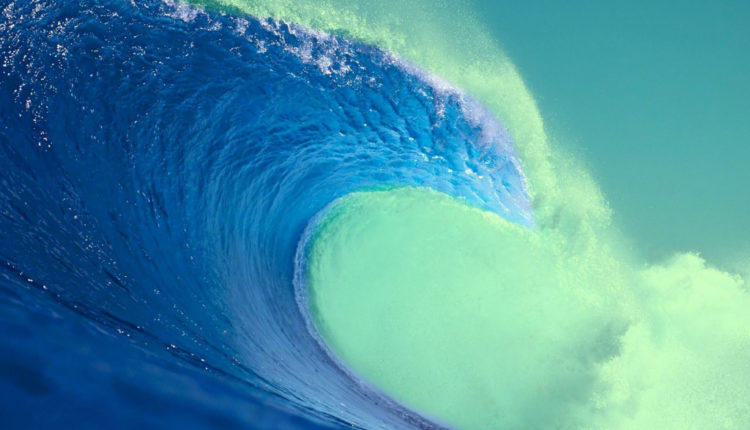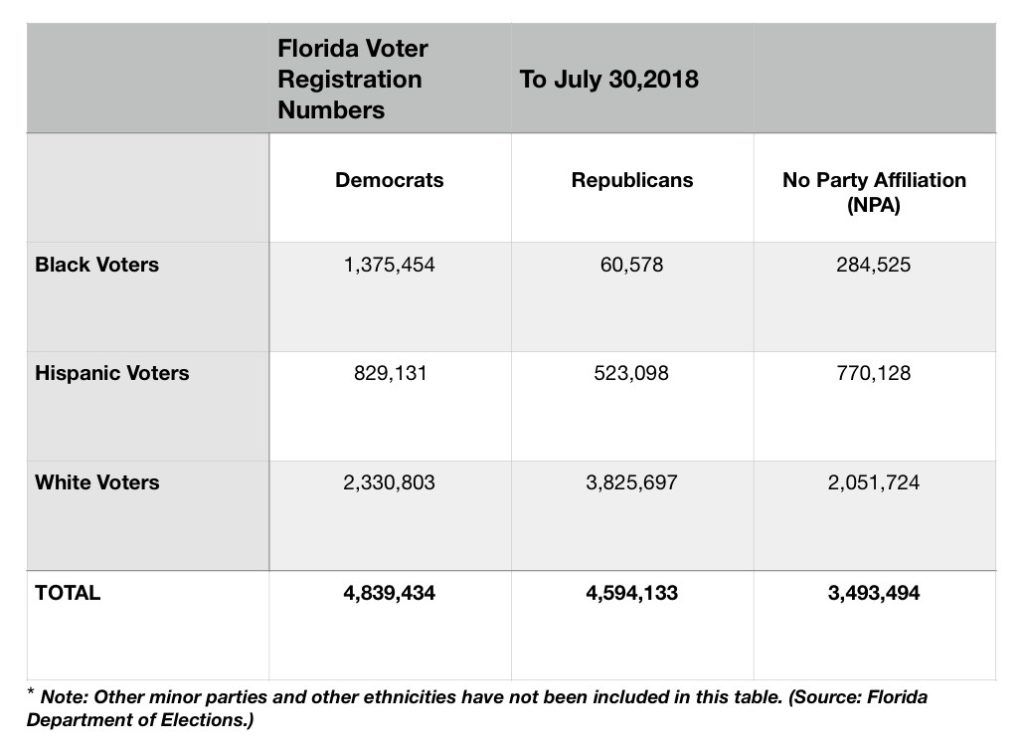
The November elections: A ‘blue wave’ or is it a ‘red tide’
They tell us a ‘blue wave’ is coming. Democrats expect to take back the House of Representatives and maybe even the Senate in November. There’s even hope of some governors’ chairs too. But the closer I look, the more I fear a toxic red tide that not only infests the waters that surround Florida, but also the politics of hate and division, a la Trump, in this southernmost state.
The 2018 midterm elections are here — almost. In Florida, where I vote, our primary elections takes place on Tuesday, Aug. 28. If you’re wondering, and you’re not registered, it’s too late for you to vote in the primary but there’s still plenty of time for the general election in November. Click here if you’re interested in registering to vote.
The last numbers before the primary have been published by the Elections Department in Tallahassee. For months we’ve heard of that blue wave I mentioned at the start, and of the Puerto Ricans who came over after the devastation caused by Hurricane Maria, and of the backlash against Trump, and so on and on and on…
November is supposed to be a happy time for Democrats. A midterm election that signifies that the Party not in power sweeps away a great deal of the majority’s hold on power. It’s the genius of our system, we have been told. The checks and balances foreseen by the founders…
The numbers so far don’t bear this out here in Florida.
The new voter registration statistics tell us that “the number of Florida voters who register with minor parties or with no party affiliation has increased 4.2 percent since 2016 while Democratic registrations have dipped 0.8 percent and Republican registrations have increased 1 percent.” This, according to the Gainesville Sun.
Doesn’t sound like a blue wave. Here’s a quick breakdown:
-
- The number of registered Democrats in the state has declined by 38,315 since 2016 while the number of Republican registrations has increased by 43,822. Meanwhile, the ranks of voters who register with other parties or no party has grown by 144,377 over the last 22 months.
-
- Registered Democrats are now 37.2 percent of Florida voters, down from 37.9 percent in 2016. The Republican share of the Florida electorate has slipped from 35.4 percent to 35.3 percent. Those registered with neither party now make up 27.5 percent of Florida voters, compared to a 26.7 percent share in 2016.
I don’t think it’s so difficult to deduce several things. One, and most importantly, those expecting a big wave against everything Trump, like so many establishment Democrats, may be delusional.
Nothing new, really. Look at what happened with the 2016 election and Hillary Clinton. Democrats ran a race based on “vote against Trump because we’re better.” And voters did not buy into that. Democrats tend to forget that voters want to know what you’re proposing. What your ideas for improvement are. And they’ve not been getting it from their elected representatives — or too many of the establishment candidates running this time around.
Another fact is that Latinos and African Americans and other minority communities are getting tired of being taken for granted. In other words, just because I’m black or Hispanic does not mean you can count on my vote — especially when many are realizing that after they vote for the Democrat, then that same Democrat goes to the halls of power and satisfies the wishes of the special interests… just like any other Republican.
It is why I wasn’t surprised to see that “most of the newly registered Latinos appear to be registering outside the major parties. Democrats have added 30,675 Hispanic voters since 2016 and Republicans have added 8,991. The number of Hispanic voters with no party affiliation has increased by 89,941 since 2016.”
The fact is that in Florida, according to statistics from the state compiled by the Gainesville Sun, “38.9 percent of Hispanics are now registered with the Democratic Party, 24.5 percent with the GOP and 36.5 percent with no party affiliation or minor parties.” In other words, the non party affiliated is by far the fastest growing party in Florida, and I would bet around the country too.
As for African American voters in Florida, and around the country, they’re registering at a slower pace and participating less since the days of Obama, when they registered and voted in record numbers. Maybe Andrew Gillum, a charismatic, young and attractive African American hoping to become the first black governor of Florida, will turn the tide and help stimulate black participation this time around.
But even then, Democrats don’t like the idea that Gillum adheres to the Bernie Sanders wing of the Democratic Party, considered too progressive by the likes of party stalwarts fearful of losing their stronghold on the party. They claim that a tack too far left is a sure way to lose an election. In the meantime, this comes from party leaders who have managed to lose control of the House, the Senate, the executive and judicial branches.
And if they’d take the time to look a little closer (which they have, but their own special interest handlers won’t allow them to look too far to the left) they’d notice that the Democrats winning are the ones offering real proposals of free healthcare and college education, a party that welcomes immigrants, and one that wastes less on defense and more on education.
Finally, there’s the Trump factor. Many of us don’t want to face the fact that the president does influence elections — and in some cases he’s been the reason for a number of Republican victories.
The president has managed to maintain between a 35 to 40 percent approval rating since he was elected. It doesn’t grow and it seems not to diminish either. It’s a basket of voters that are faithful to that message of hate and fear espoused by the Trumpians. Democrats have to figure out how to counter the message. And it’s not “vote for me I’m against Trump.”
So November’s around the corner. Will Florida go blue, or is Trump’s red tide what we can expect? Turnout will determine that. And the numbers, so far, don’t seem to offer great hope for those of us looking for a more progressive turn.


